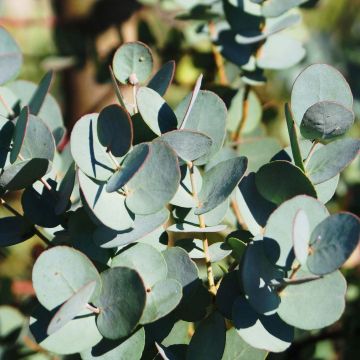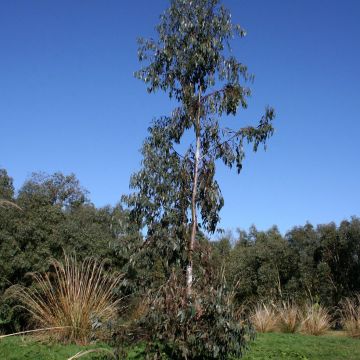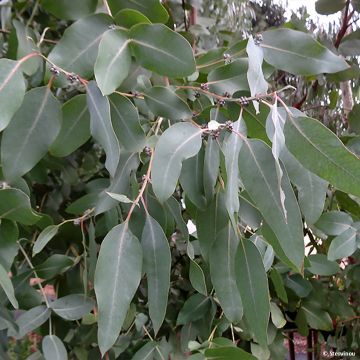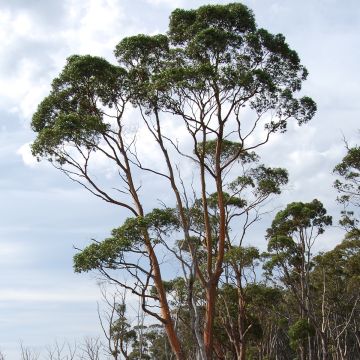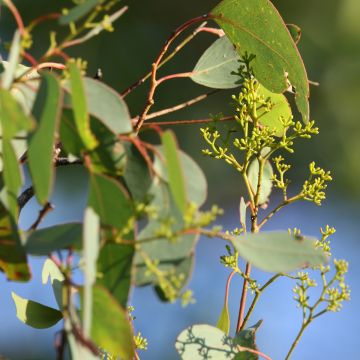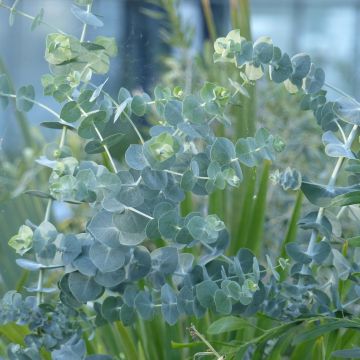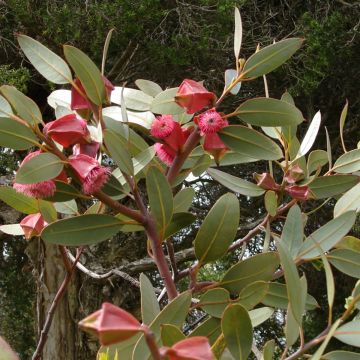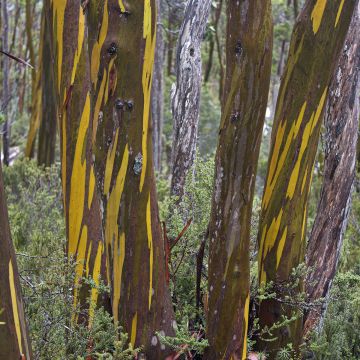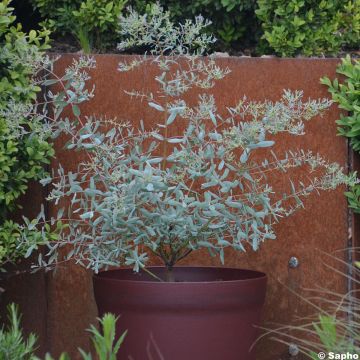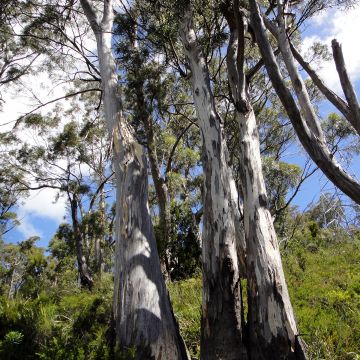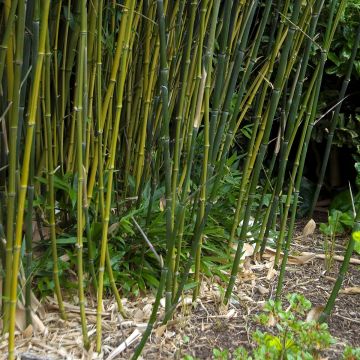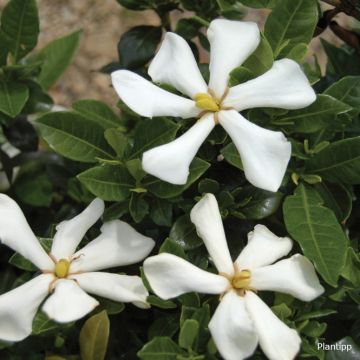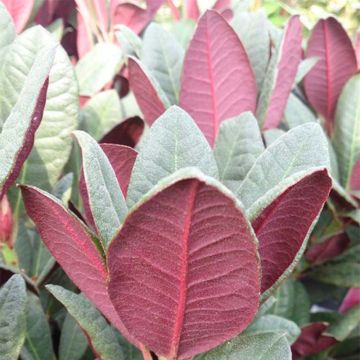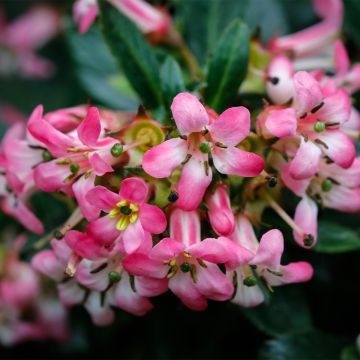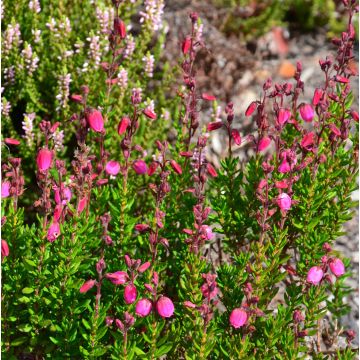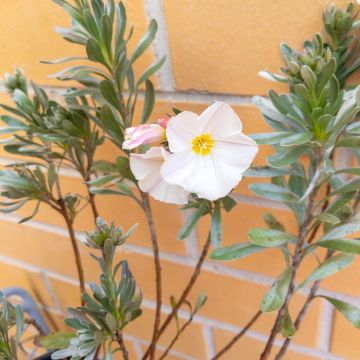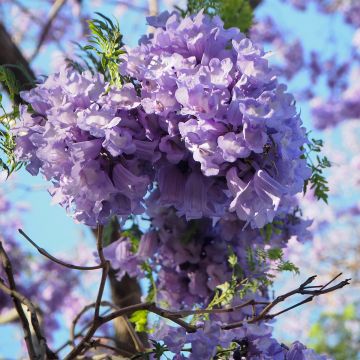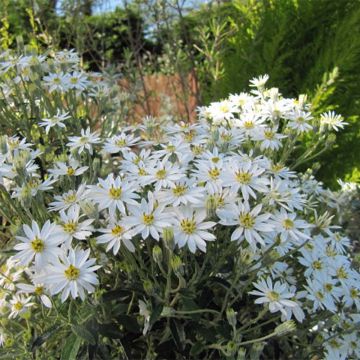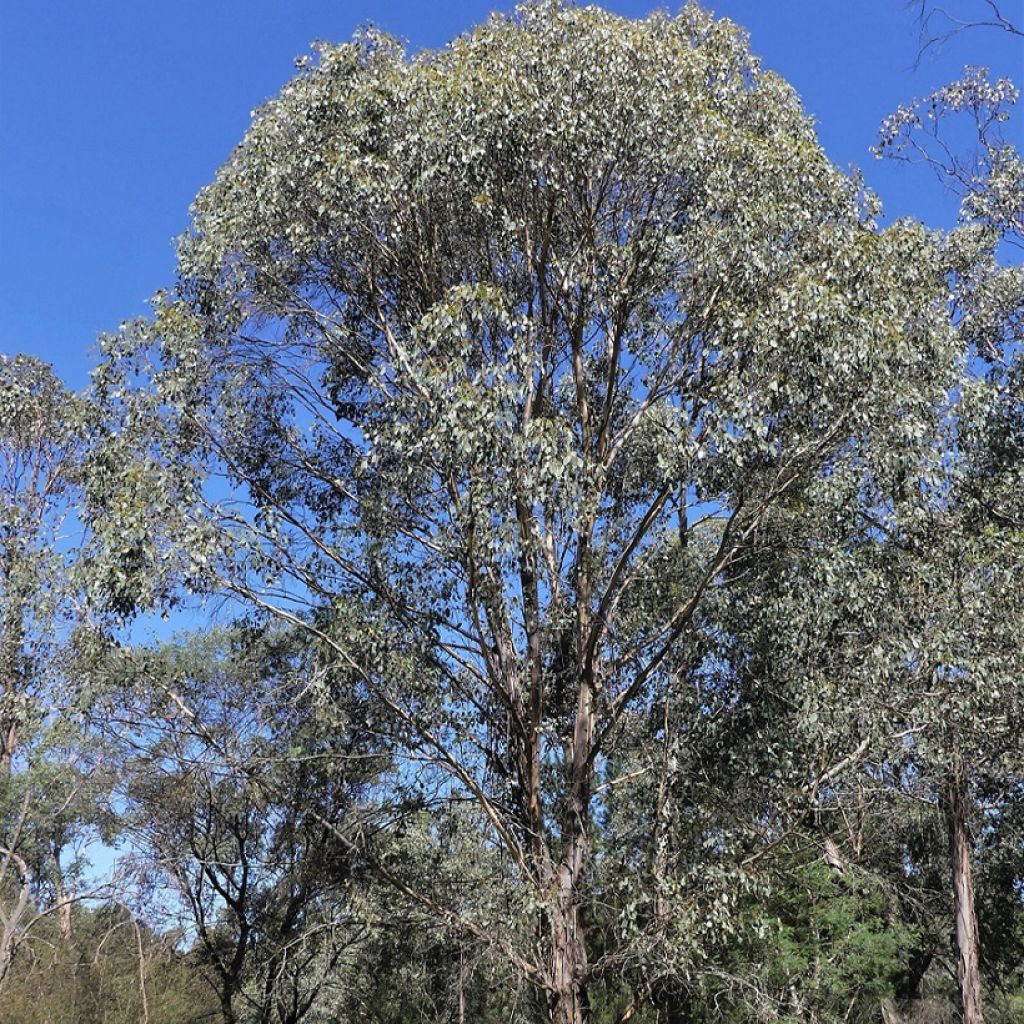

Eucalyptus camphora subsp humeana
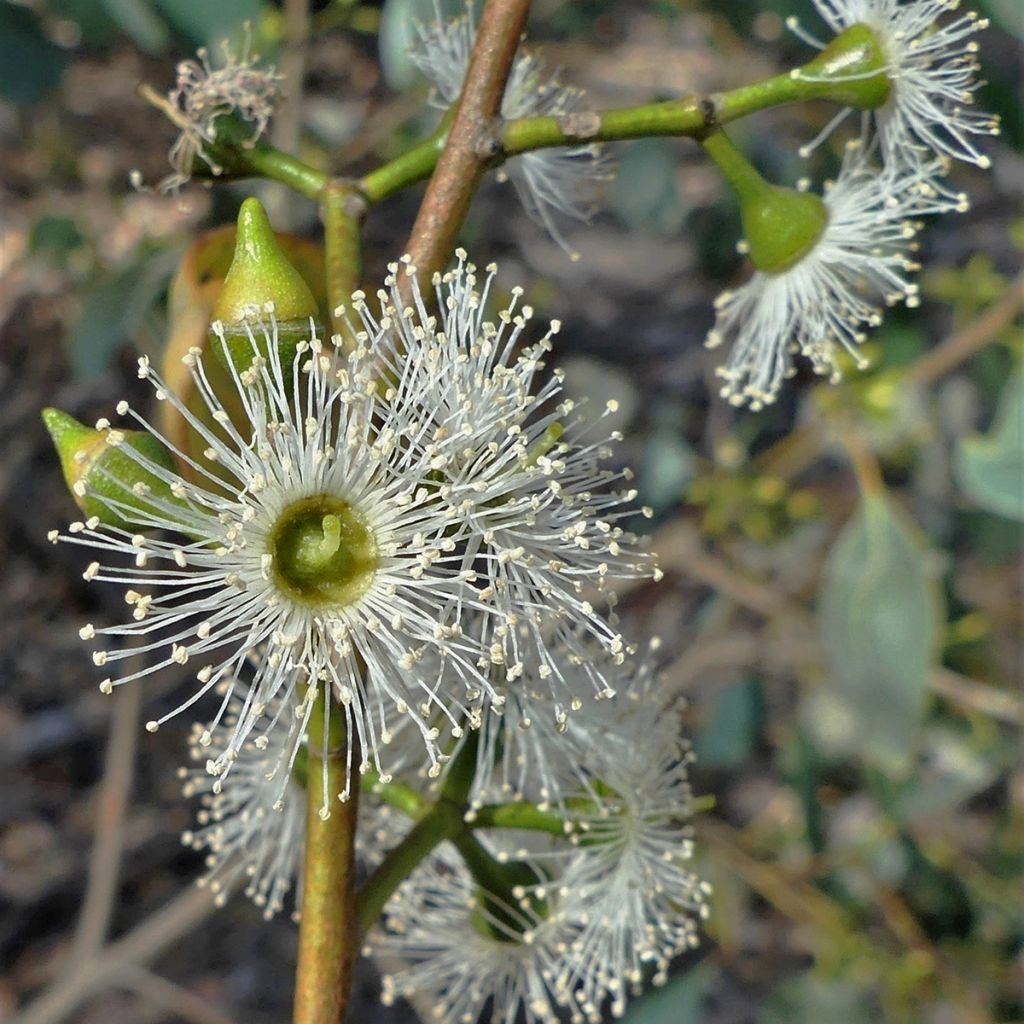

Eucalyptus camphora subsp humeana
Eucalyptus camphora subsp humeana
Eucalyptus camphora subsp humeana
Swamp Gum
It seems that there is a "small" mistake in the description of this eucalyptus: it is impossible for the height to be 1 meter!!!! A correction is needed. THANK YOU.
sylora, 05/03/2024
Special offer!
Receive a €20 voucher for any order over €90 (excluding delivery costs, credit notes, and plastic-free options)!
1- Add your favorite plants to your cart.
2- Once you have reached €90, confirm your order (you can even choose the delivery date!).
3- As soon as your order is shipped, you will receive an email containing your voucher code, valid for 3 months (90 days).
Your voucher is unique and can only be used once, for any order with a minimum value of €20, excluding delivery costs.
Can be combined with other current offers, non-divisible and non-refundable.
Home or relay delivery (depending on size and destination)
Schedule delivery date,
and select date in basket
This plant carries a 24 months recovery warranty
More information
We guarantee the quality of our plants for a full growing cycle, and will replace at our expense any plant that fails to recover under normal climatic and planting conditions.
Would this plant suit my garden?
Set up your Plantfit profile →
Description
Eucalyptus camphora subsp humeana or Mountain Marsh Gum is native to southern Australia. Its natural habitat is the moist soil of marshy mountainous regions. The species name camphora comes from the fragrant camphor essential oil present in its leaves. It is a very vigorous species that grows from 1.5 to 2 m (4 ft 11 in to 6 ft 7 in) per year. It quickly forms a tree 10 m (32 ft 10 in) tall, but ultimately (after many decades), it can reach up to 20 m (65 ft 7 in) in moist soil. The shape of its heart-shaped juvenile leaves is very decorative. Its buds and young shoots are golden and purple. Its adult foliage is lanceolate and olive green. You will also appreciate its pretty white pompon flowers. It is hardy to -13° (8.6 °F) to -15° (5 °F) C at maturity. It grows in moist to marshy, heavy and clayey soils, but also in dry soil. It tolerates prolonged submerged periods.
Eucalyptus camphora subsp humeana is a species native to the marshy valleys of New South Wales and Southern Victoria in Australia. Like all Eucalyptus, it belongs to the myrtaceae family. Its growth is very fast, forming a small tree measuring about 10 m (32 ft 10 in) in height and 4.50 m (14 ft 10 in) in width within a few years, depending on the growing conditions. Its bark is rough towards the bottom and brown-to-grey. Where it is smooth, it is grey to green. The juvenile leaves are rounded, cordate, green to blue-green. The adult leaves, pendulous, large and thinner, are elliptical or lanceolate. They measure from 6 to 15 cm (2.4 to 5.9 in) long. They are apple green to olive green. This foliage gives off a strong camphorated scent when crushed. The flowering spreads from November to May, depending on the climate and the years, generally February-March. The flowers are grouped in 3s at the axil of the leaves in white glomerules. This eucalyptus has a lignotuber just below the surface of the soil. This organ allows it to grow again from the stump in case of severe frost, fire or pruning to the ground. This species is said to withstand snow and cold well. Its root system is not very extensive, is less dangerous for buildings and creates less competition for other garden plants. And its vegetation only offers very light shade.
Eucalyptus camphora subsp humeana grows in the sun, but also tolerates semi-shade quite well. Plant it alone in a medium to large size garden. Its heart-shaped juvenile leaves are very popular with florists and in floral art. It brings an elegant touch to the garden and is easy to contain by pruning. Finally, it is an ornamental plant at all stages of its growth. Undemanding regarding the soil, it is useful in a permanently wet area, but can quite be grown in normal to drier soil.
Do not confuse this subspecies camphora subsp humeana with the eucalyptus camphora subsp camphora which will not exceed 10 m (32 ft 10 in) in height.
Report an error about the product description
Eucalyptus camphora subsp humeana in pictures


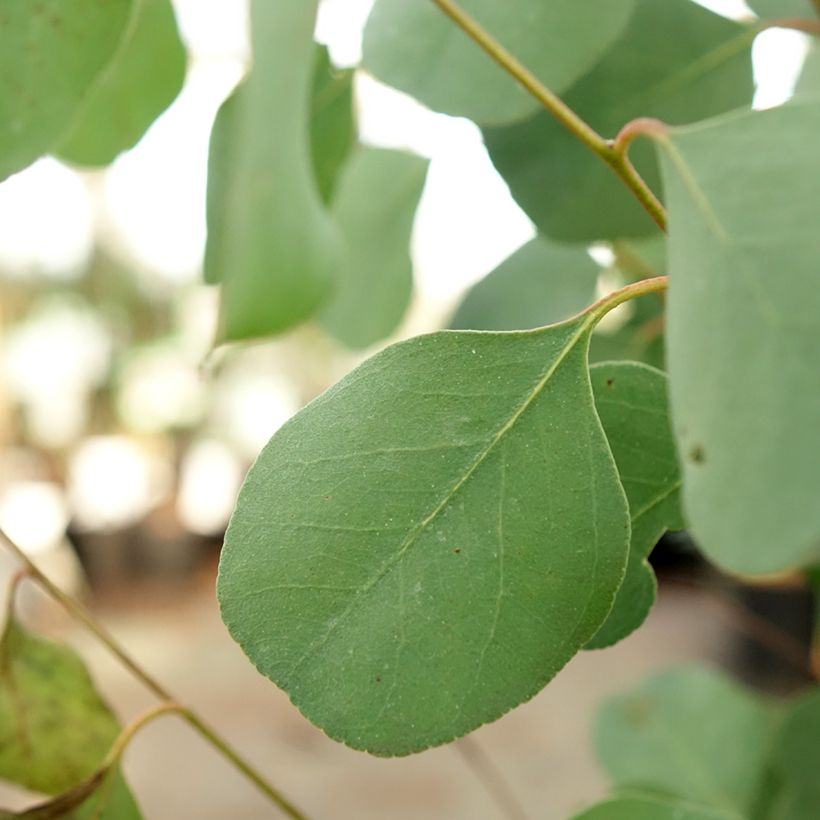

Plant habit
Flowering
Foliage
Botanical data
Eucalyptus
camphora subsp humeana
Myrtaceae
Swamp Gum
Australia
Other Eucalyptus
View all →Planting and care
Eucalyptus camphora susbsp humeana is best planted at the start of autumn or the beginning of spring, in well-prepared soil, not too dry to fresh and even wet, clayey or flooded, in a sunny or semi-shaded situation. However, this mountain species does not much like heatwaves and dry land. Water well at planting, then regularly in the first year, especially in dry weather and if the summer is dry and hot. Then let nature take its course, the growth is very rapid. There's no need for pruning, but the plant tolerates pruning very well after 3 or 4 years of cultivation.
This eucalyptus loves moist and deep soils, near ditches or the compost heap.
Planting period
Intended location
Care
-
, onOrder confirmed
Reply from on Promesse de fleurs
Similar products
Haven't found what you were looking for?
Hardiness is the lowest winter temperature a plant can endure without suffering serious damage or even dying. However, hardiness is affected by location (a sheltered area, such as a patio), protection (winter cover) and soil type (hardiness is improved by well-drained soil).

Photo Sharing Terms & Conditions
In order to encourage gardeners to interact and share their experiences, Promesse de fleurs offers various media enabling content to be uploaded onto its Site - in particular via the ‘Photo sharing’ module.
The User agrees to refrain from:
- Posting any content that is illegal, prejudicial, insulting, racist, inciteful to hatred, revisionist, contrary to public decency, that infringes on privacy or on the privacy rights of third parties, in particular the publicity rights of persons and goods, intellectual property rights, or the right to privacy.
- Submitting content on behalf of a third party;
- Impersonate the identity of a third party and/or publish any personal information about a third party;
In general, the User undertakes to refrain from any unethical behaviour.
All Content (in particular text, comments, files, images, photos, videos, creative works, etc.), which may be subject to property or intellectual property rights, image or other private rights, shall remain the property of the User, subject to the limited rights granted by the terms of the licence granted by Promesse de fleurs as stated below. Users are at liberty to publish or not to publish such Content on the Site, notably via the ‘Photo Sharing’ facility, and accept that this Content shall be made public and freely accessible, notably on the Internet.
Users further acknowledge, undertake to have ,and guarantee that they hold all necessary rights and permissions to publish such material on the Site, in particular with regard to the legislation in force pertaining to any privacy, property, intellectual property, image, or contractual rights, or rights of any other nature. By publishing such Content on the Site, Users acknowledge accepting full liability as publishers of the Content within the meaning of the law, and grant Promesse de fleurs, free of charge, an inclusive, worldwide licence for the said Content for the entire duration of its publication, including all reproduction, representation, up/downloading, displaying, performing, transmission, and storage rights.
Users also grant permission for their name to be linked to the Content and accept that this link may not always be made available.
By engaging in posting material, Users consent to their Content becoming automatically accessible on the Internet, in particular on other sites and/or blogs and/or web pages of the Promesse de fleurs site, including in particular social pages and the Promesse de fleurs catalogue.
Users may secure the removal of entrusted content free of charge by issuing a simple request via our contact form.
The flowering period indicated on our website applies to countries and regions located in USDA zone 8 (France, the United Kingdom, Ireland, the Netherlands, etc.)
It will vary according to where you live:
- In zones 9 to 10 (Italy, Spain, Greece, etc.), flowering will occur about 2 to 4 weeks earlier.
- In zones 6 to 7 (Germany, Poland, Slovenia, and lower mountainous regions), flowering will be delayed by 2 to 3 weeks.
- In zone 5 (Central Europe, Scandinavia), blooming will be delayed by 3 to 5 weeks.
In temperate climates, pruning of spring-flowering shrubs (forsythia, spireas, etc.) should be done just after flowering.
Pruning of summer-flowering shrubs (Indian Lilac, Perovskia, etc.) can be done in winter or spring.
In cold regions as well as with frost-sensitive plants, avoid pruning too early when severe frosts may still occur.
The planting period indicated on our website applies to countries and regions located in USDA zone 8 (France, United Kingdom, Ireland, Netherlands).
It will vary according to where you live:
- In Mediterranean zones (Marseille, Madrid, Milan, etc.), autumn and winter are the best planting periods.
- In continental zones (Strasbourg, Munich, Vienna, etc.), delay planting by 2 to 3 weeks in spring and bring it forward by 2 to 4 weeks in autumn.
- In mountainous regions (the Alps, Pyrenees, Carpathians, etc.), it is best to plant in late spring (May-June) or late summer (August-September).
The harvesting period indicated on our website applies to countries and regions in USDA zone 8 (France, England, Ireland, the Netherlands).
In colder areas (Scandinavia, Poland, Austria...) fruit and vegetable harvests are likely to be delayed by 3-4 weeks.
In warmer areas (Italy, Spain, Greece, etc.), harvesting will probably take place earlier, depending on weather conditions.
The sowing periods indicated on our website apply to countries and regions within USDA Zone 8 (France, UK, Ireland, Netherlands).
In colder areas (Scandinavia, Poland, Austria...), delay any outdoor sowing by 3-4 weeks, or sow under glass.
In warmer climes (Italy, Spain, Greece, etc.), bring outdoor sowing forward by a few weeks.






























